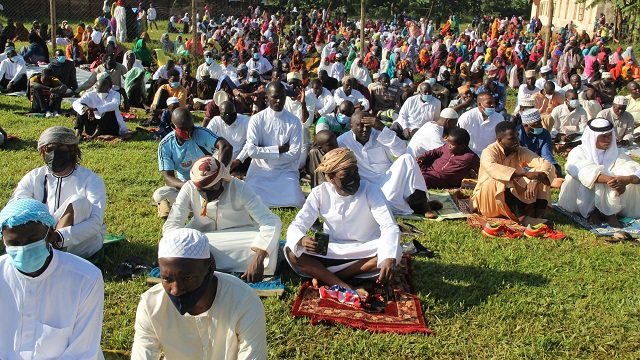
Jinja, Uganda | THE INDEPENDENT | Muslim clerics in the Busoga sub-region have tasked the government to quicken the operationalization of Islamic banking. They argue that it will empower impoverished Muslims to easily start-up business enterprises of their own.
Islamic banking is provided for in the Financial Institution’s Amendment Act of 2016, however, its operationalization is yet to be realized within the country.
In her address to the Muslim community during their Iftar dinner on 16th April 2021, the Speaker of Parliament Rebecca Kadaga pledged to expedite the formation of the central Sharia advisory committee, which would quickly facilitate the operationalization of Islamic banking in Uganda.
While addressing journalists on Thursday, the Busoga Muslim regional Kadhi, Hussein Bowa said that some of the terms in the circular banks warrant borrowers to pay high interest rates, which has partly deterred small business owners from accessing their much-desired credit facilities in fear of the repercussions.
Bowa explained that Islam discourages acts of cheating and since Islamic banking discourages exposing borrowers to exorbitant interest rates, Muslim believers and other interested parties can easily engage in monetary transactions without compromising the provisions in the Quran.
Meanwhile, Sheikh Mohammed Kanyola, the head of Maulidi at the Jinja Muslim district offices says that government should also recognize the functionality of Islamic courts, which he claims to be more efficient in solving misunderstandings among Muslim communities.
Kanyola stresses that some community evils like domestic violence are easily solved through Islamic courts, as affected parties are challenged to raise families based on Quran teachings which agitate for peace and harmony.
He adds that the Islamic courts will not undermine Uganda’s constitution since most of the laws guide believers to lead righteous lives by distancing themselves from all evil acts.
Sheikh Adhi Basoga, the Jinja district Kadhi says that they have embarked on programs of ending domestic violence by mobilizing married couples to embrace the teachings of the Holy Quran, which direct the women to submit to their husbands whereas the men are tasked to unconditionally love their wives. He argues that such teachings are slowly eliminating cases of domestic violence within the Islamic community.
*****
URN
 The Independent Uganda: You get the Truth we Pay the Price
The Independent Uganda: You get the Truth we Pay the Price





